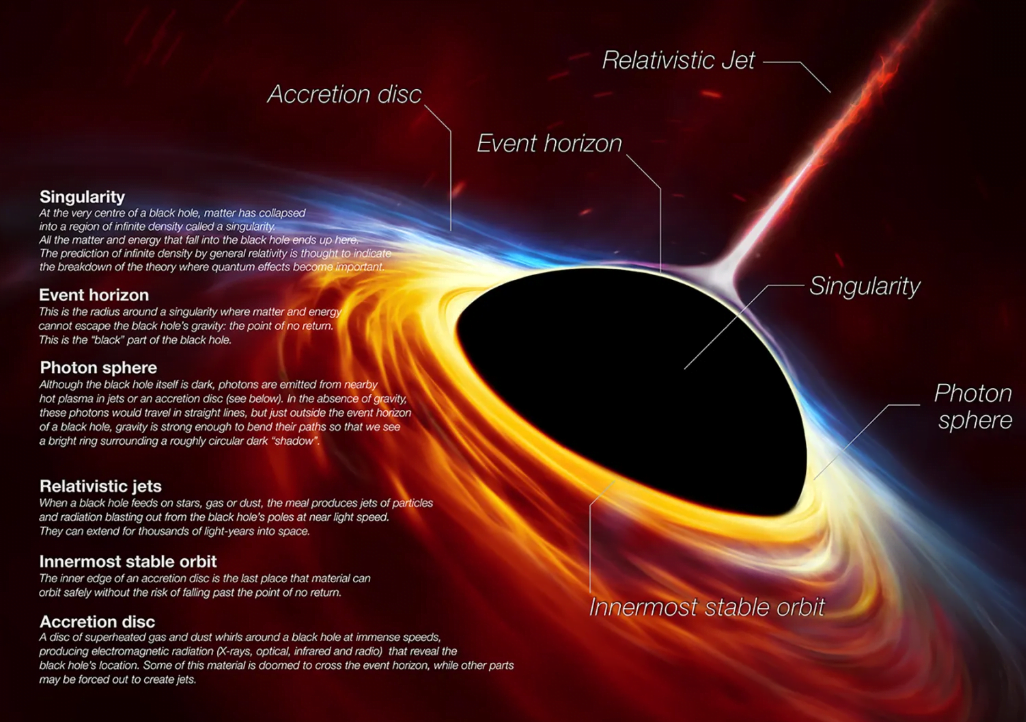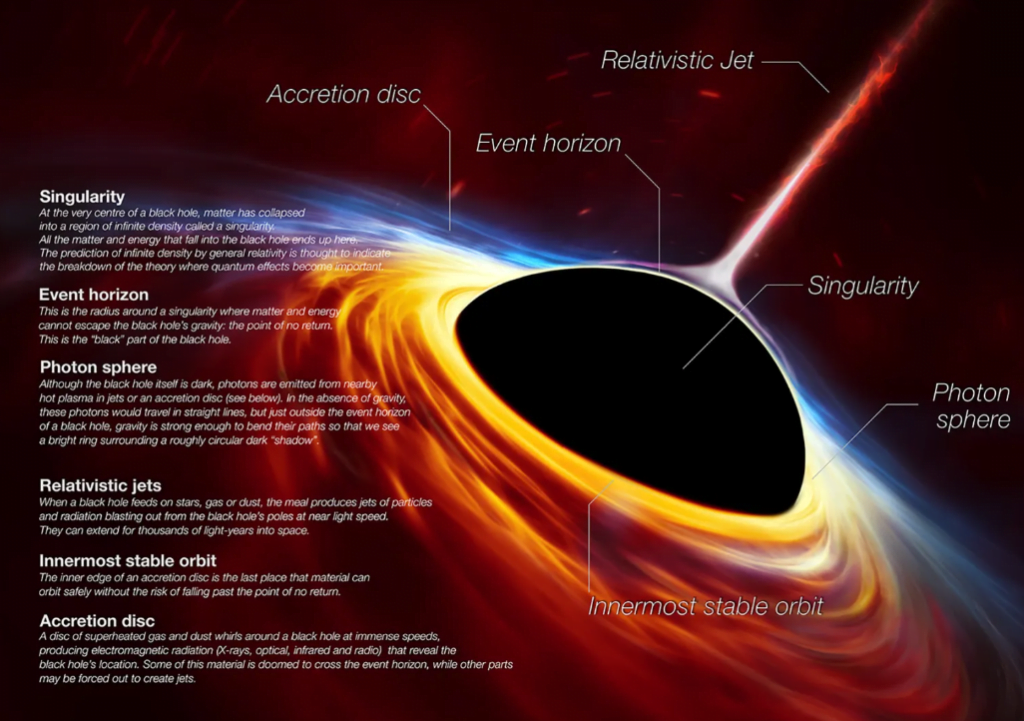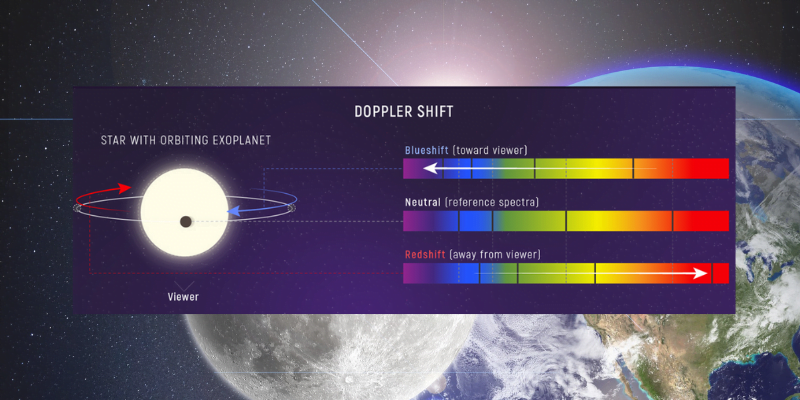Journey into the Cosmic Abyss: A Beginner’s Guide to Black Holes and the Event Horizon

This artist's impression depicts a rapidly spinning supermassive black hole surrounded by an accretion disc. The black hole is labeled, showing the anatomy of this fascinating object.
Hey there cosmic explorers! Today, we’re embarking on a thrilling journey through the universe’s ultimate enigma – black holes and their mysterious sidekick, the event horizon. Get ready for a rollercoaster ride through the cosmos!

Getting to Know Black Holes:
So, what’s the deal with black holes? Well, picture this: a massive star runs out of fuel, gives a dramatic farewell, and collapses under its own gravity. Voila! You’ve got yourself a black hole. They come in different sizes – small, medium, and supermassive – like the cosmic Goldilocks story, but with a way bigger impact.
Meet the Stellar Superstars:
Stellar black holes, the rockstars of this celestial show, pack a punch with 3 to 10 times the mass of our good ol’ Sun. On the other end of the spectrum, we’ve got supermassive black holes, hanging out at the center of galaxies, boasting masses millions or even billions of times greater than our sun. Talk about heavyweights!
The Lowdown on Event Horizon:
Now, let’s talk about the event horizon – the cosmic velvet rope surrounding a black hole’s VIP section. Once you’re past this point, there’s no turning back – it’s the Hotel California of space! Anything, and I mean anything, that crosses this line is in for a one-way trip into the gravitational jaws of the black hole.
Behind the Event Horizon Curtains:
Think of the event horizon as the cosmic backstage pass, granting access to a space party like no other. But here’s the catch – the laws of physics, as we know them, start doing the cha-cha at this point. It’s a no man’s land where time seems to hit the snooze button, and things get a bit, well, weird.
Hawking’s Starlight Symphony:
Ever heard of Hawking radiation? It’s like the slow sizzle of a cosmic frying pan. Theorized by the legendary Stephen Hawking, it suggests that black holes might not be forever hungry – they could actually lose mass over time. Mind-blowing, right?
So, What’s the Big Deal?
Black holes and their event horizons are like the rockstars of astrophysics, pushing the boundaries of what we thought we knew about the universe. From the mind-bending time warps to the information paradox debates, these cosmic mysteries are the real MVPs of the cosmic show.
As we navigate the twists and turns of black holes and their event horizons, remember – the universe is like a giant puzzle, and we’re just figuring out how the pieces fit. So buckle up, stargazers, because the journey into the cosmic abyss has just begun, and who knows what celestial surprises await us around the next bend! Keep looking up!

Properties of Black Holes:
Singularity:
At the core of a black hole lies the singularity—a point of infinite density and zero volume. Classical physics breaks down at this point, and scientists believe that a theory of quantum gravity is necessary to describe the singularity accurately.
Event Horizon:
The event horizon is the boundary surrounding a black hole, beyond which escape is impossible due to the overwhelming gravitational pull. Once an object, including light, crosses the event horizon, it is forever trapped within the black hole’s grasp.
Exploring the Event Horizon:
No Escape:
The event horizon is a one-way boundary; anything that crosses it is destined to fall into the black hole’s singularity. This makes the event horizon a point of no return, where the laws of physics as we understand them seem to cease.
Information Paradox:
The fate of information that falls into a black hole has been a subject of intense debate. According to classical physics, information swallowed by a black hole would be lost forever, violating the principles of quantum mechanics. This has led to the formulation of theories such as Hawking radiation, suggesting that black holes may slowly lose mass over time.
Stretching of Spacetime:
As an object approaches the event horizon, the gravitational forces cause spacetime to become highly distorted. This phenomenon, known as gravitational time dilation, results in time appearing to pass more slowly for an observer outside the black hole compared to an observer falling into it.














